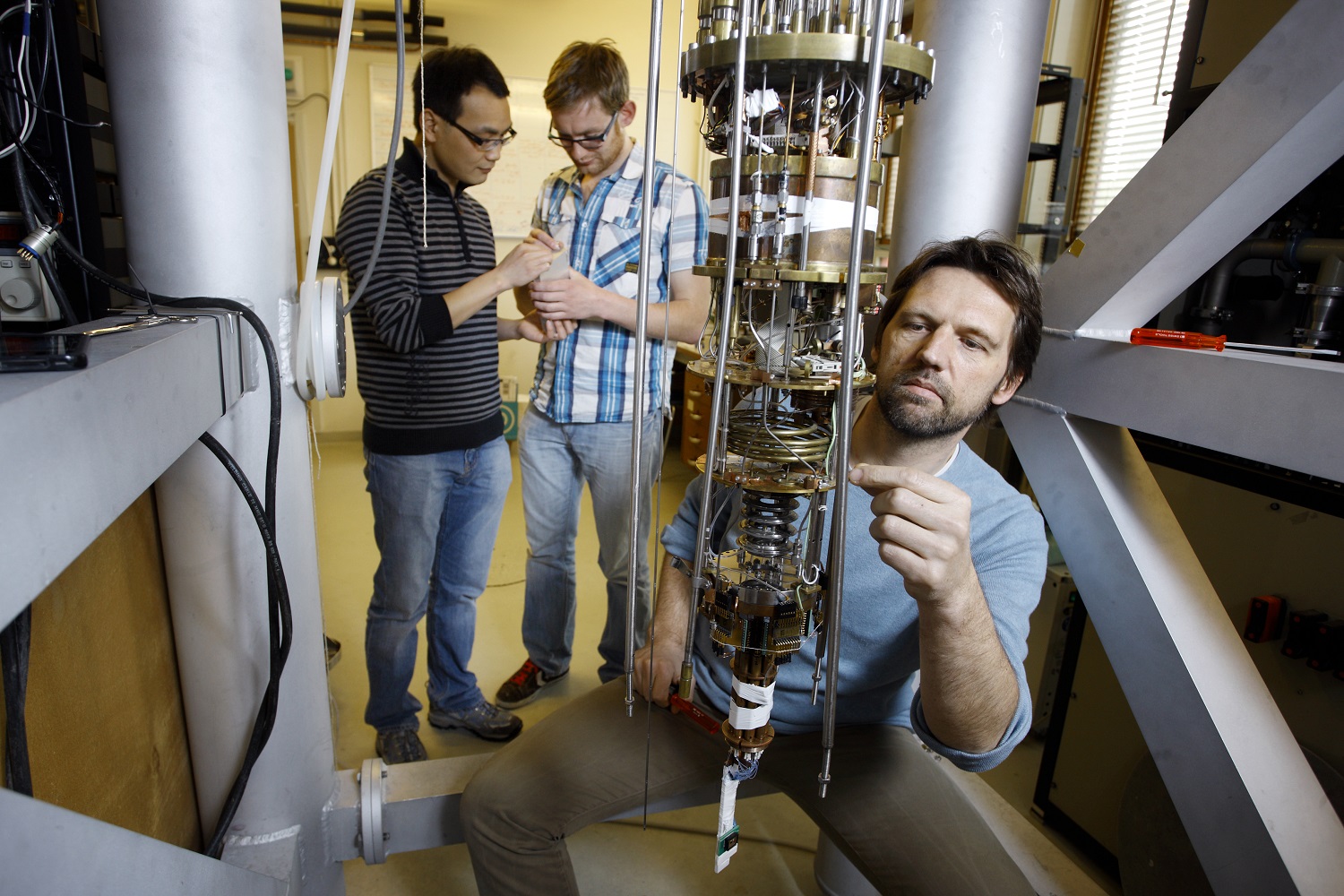The TU Delft QuTech Quantum Computing research group has raised the alarm. Its conclusions on majorana particles in a Nature article two years ago may not be right.
The discovery of the majorana particle in 2012 at TU Delft made Professor Leo Kouwenhoven somewhat of a celebrity. (Photo: Sam Rentmeester)
Majorana trilogy completed, was the headline of a press release TU Delft issued in March 2018. The press release stated that QuTech researchers finally found definitive proof that majorana exists, paving the way for majorana quantum bits.
Since the breakthrough discovery of the majorana particle in 2012 at TU Delft, which made TU Delft researcher Professor Leo Kouwenhoven somewhat of a celebrity, the team at QuTech, headed by Kouwenhoven, has worked hard to prove even more convincingly that the particle exists.
The first experiment in 2012 still left some room for doubt. In the years that followed, researchers improved the theory, materials and the experimental fabrications. Understandably so, because the elusive majorana particle may be the key to very fast and powerful quantum computers. Their unique physical characteristics are thought to make majorana particles much more stable than the majority of other qubits.
Repetitions of the experiments have not always yielded the same results
In 2018 the researchers found the tell-tale signature of quantised conductance, definitely proving that majorana exist, or so they presumed. Their findings were published in Nature, prompting the Majorana trilogy completed press release. But it now seems the researchers were cheering prematurely. Repetitions of the experiments have not always yielded the same results. The TU Delft researchers alerted the editors of Nature ‘to potential problems in the manner in which the raw data in this Letter have been processed, and these will have an impact on the conclusions that can be reliably drawn’.
Kouwenhoven doesn’t want to elaborate on the details yet, he told the Dutch newspaper Volkskrant. The new results have been re-submitted to Nature and will probably be published in June. From that point on he will be free to comment. According to Kouwenhoven, there are no doubts about the earlier work on majorana particles. Delta called QuTech, but did not succeed in speaking with Kouwenhoven nor a communication officer at this point.
Update 16-05-2020
A TU Delft Communication Officer told Delta that the TU Delft Research Integrity Committee is investigating whether the research, data analysis and writing of the publication were executed in accordance with the applicable guidelines.
The faculty of Applied Sciences and the head of research of QuTech alerted the committee in early March about irregularities in the paper. The Communication Officer could not as yet say when the results of the investigation are expected. She told Delta that it is customary for the Committee to call upon outside experts.
QuTech published this press release about the issue.
Do you have a question or comment about this article?
tomas.vandijk@tudelft.nl


Comments are closed.